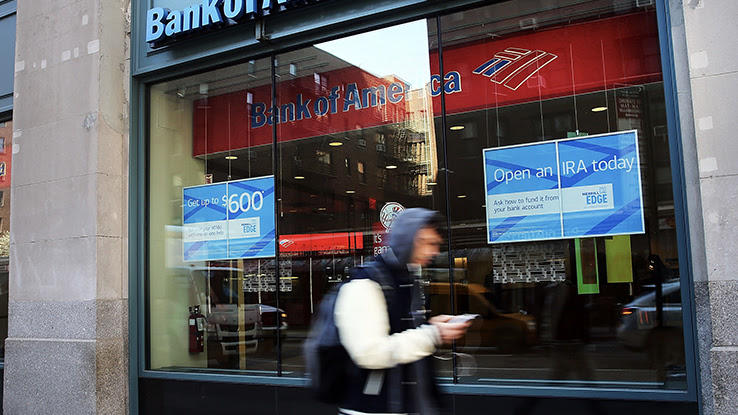How to Add Capital One Card to Online Account

In today's world, you need an online bank account for almost everything. From paying bills online to depositing checks, everything is easier with an online account. If you're looking to open a new online checking account, we're here to help you with all the basics. From what documents you need to how to fund your account, we've rounded up a go-to guide to opening a checking account.

A checking account is an account you can use to pay everyday expenses, bills, and more. A checking account is used for deposits and withdrawals every day. You can spend, save, and fund money into your account using online transfers, checks, and deposits.
What Is a Checking Account Used for?

A checking account is great for keeping your money for the medium to short term. A checking account isn't a savings or investment account. This means the account is designed for money to go in and out daily. Your employer can pay you directly into your checking account, for example. You can also withdraw money by directly transferring it to pay a bill. An electric bill, for example, can be paid automatically through your checking account.
In this digital age, a checking account will make all your financial to-dos easier. Without a checking account online, there's no way for you to automatically deposit your income and pay your bills online. A checking account can also use paper or electronic checks with your name and bank account information to pay for goods or services. When you fill out a check you address it to the payee or company and fill out how much you'd like to pay. The person's bank then pulls the information from your check to fund your payment. An online checking account allows you to pay people with a check or use an application such as PayPal or Venmo to pay someone for a service or gift.
Different Types of Checking Accounts

As with all bank accounts, there are several different types of checking accounts. A regular checking account is the simplest and most common checking account used. There are typically low minimums, very few fees, and you can use your account to do all your basic banking. There will often be little to no interest paid on the balance in your checking account. This means it isn't earning any money by staying in your account.
A premium checking account is great for those who always have a certain minimum in their checking account. You'll have perks such as waived ATM fees, free checks, and you'll even earn a small amount of interest on the balance in your account. While these are all benefits, if you have a lot of money in your checking account, you'd probably make more money if it was invested or placed in a money market account.
There are also interest-bearing checking accounts that pay you a higher rate of interest by keeping your money in your account. You'll want to look over all the fees to determine if your money is well spent in one of these accounts.
For young adults, students, or people who've experienced financial hardship, there are several different checking account options available. These accounts will have little to no fees or minimums. Some of these accounts won't offer the ability to write paper checks, however. You also may not be covered on overdrafts if you spend more than what is in your account. If you overdrew on an account in the past, for example, your bank may have closed your account. A closed checking account will show on your credit report.
Checking Account Vs Savings Account

There are a few differences that separate a savings and checking account. With a checking account, you can use an ATM card, write checks, and run automatic withdrawals and deposits. A checking account provides easy access to your money.
A savings account won't typically come with an ATM card or checks. These are designed to save your money for longer periods. With a checking account, money is coming in and out daily. With a savings account, the goal is to be taking it out less frequently. The money in your savings account can be used for emergencies or financial goals you've been working toward. A savings account shouldn't be used for day-to-day expenses.
What Do You Need to Open a Checking Account?

To open a checking account, you'll need a few basic pieces of information. To start, you'll need your driver's license and social security number. You'll also need your address and an email to create your account login.
To fund your checking account, you can transfer money from a previously opened savings account, set up online payments through your work, or go into a bank branch with cash or checks. Once your account is set up, you'll easily be able to access your account online.
How Much Does it Cost to Open a Checking Account?

The cost to open a checking account will differ depending on which bank you choose. Some banks may require a deposit to set up an account while others won't have a minimum. Some banks may also offer you a sign-on bonus where they deposit money into your account for creating a checking account with them.
Which Banks Allow You to Open a Checking Account Online?

There are several banks that offer the ability to open a checking account online. Many are traditional banks and others are online-only. A few of the major banks that offer online checking accounts include BMO Harris, Capital One, Wells Fargo, Bank of America, PNC, US Bank, Citi, and SunTrust. Online banks include Chime, Ally, and Lending Club.
Which Checking Account Is Right for You?

Before you choose your checking account, there are a few factors to consider. To start, think about what's important to you. Would you like to do all your banking online? Will you have a lot of cash to deposit from a job you receive tips for? Or maybe you'll have a high balance in your account each week in which you'd like to earn interest. Taking in a few of these considerations will help you determine the best online checking account for you.
MORE FROM ASKMONEY.COM
How to Add Capital One Card to Online Account
Source: https://www.askmoney.com/credit-cards/checking-account-online?utm_content=params%3Ao%3D1465803%26ad%3DdirN%26qo%3DserpIndex